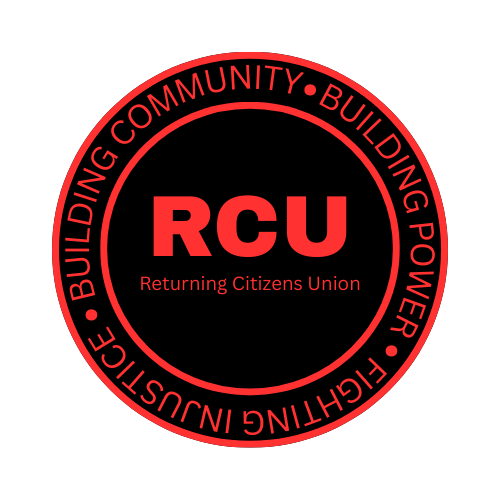why we fight: mass incarcertion and the road home
This page outlines the systems we’re up against and the reasons we organize, advocate, and push for change. From reentry to prison conditions to systemic injustice, this is what fuels our work.
over 1.8 million incarcerated, over $182 billion a year
mass incarceration
The United States incarcerates more people than any other country in the world—with over 1.8 million individuals currently held in jails and prisons. Mass incarceration has devastated Black, Brown, and low-income communities, fueled by decades of punitive policies and systemic racism. It is not a response to rising crime; it is the result of deliberate policy choices that criminalize poverty, addiction, and mental illness.
The cost is staggering. Each year, mass incarceration costs governments, families, and communities over $182 billion, diverting critical resources away from education, healthcare, housing, and economic development.
We fight to dismantle this system not only because it wastes public resources, but because it wastes lives, families, and futures.
THe prison-industrial complex
The prison-industrial complex (PIC), describes the overlapping interests of government and industry that profit from using surveillance, policing, and imprisonment to address economic, social, and political problems. It’s not just about private prisons—it’s about entire industries that make money from prison labor, communications, healthcare, bail, and surveillance. Every stage of the criminal legal system has been turned into a profit center, often at the expense of the most vulnerable.
We fight to end the exploitation of incarceration for profit, and to redirect investment into the real building blocks of safety: education, employment, housing, and healing.
The Criminalization of Black and Brown Communities
Mass incarceration reflects and reinforces racial injustice. Black Americans are incarcerated at nearly six times the rate of white Americans, and Hispanic Americans at approximately three times the rate.
New Jersey itself has the highest Black-white incarceration disparities in the country with Black residents being twelve times more likely to be incarcerated than a white resident.
This overrepresentation is no accident. It is the outcome of decades of discriminatory policing, mandatory minimum sentences, the war on drugs, and the systemic devaluation of Black and Brown lives.
We fight to dismantle these structures and build a system rooted in racial equity, dignity, and true community safety.
the reality of plea bargains
Across the country, nearly 98% of criminal cases, annually, are resolved through plea bargains, not trials. This practice pressures people—especially those who are poor, young, or marginalized—into pleading guilty, often to avoid the risk of extreme sentences, even when they maintain their innocence.
Plea bargaining has become less about justice and more about efficiency, at the cost of fundamental rights. It fuels mass incarceration by pushing people through the system quickly and quietly.
We fight for a system where justice is not determined by fear, coercion, or expediency, but by fairness, truth, and real accountability.
We fight to dismantle this system not only because it wastes public resources, but because it wastes lives, families, and futures.
the voices behind the wall
Behind the walls, stories of strength and resistance continue to grow. Yet the realities are harsh: solitary confinement, lack of medical care, abuse, and systemic neglect are everyday conditions. Incarcerated people are often denied even the most basic human rights, treated as invisible and disposable.
We fight to amplify the voices of those still incarcerated—because dignity does not end with imprisonment, and their leadership is essential to any real movement for change.
the importance of reentry support
Coming home after incarceration is a critical but fragile moment. Every year, more than 600,000 people return to their communities from prison, often facing staggering barriers to employment, housing, healthcare, and civic participation. One staggering fact is that formerly incarcerated people are almost 10 times more likely to be homeless than the general public. Without real support, the system is designed for failure: within just three years of release, two-thirds of people are rearrested.
Stable housing, employment opportunities, mental health care, and strong community support are not luxuries—they are necessities for success.
We fight to make reentry about more than survival—we fight to make it about thriving. With dignity, opportunity, and support, returning citizens can rebuild their lives and lead the movement for justice.
Every year, more than 600,000 people return to their communities from prison
join the fight
join the fight
Mass incarceration won't end on its own. Building a just, compassionate, and equitable society will take all of us. Whether you are a returning citizen, a family member, or an ally, you have a role to play. Stand with us as we build power, change the narrative, and fight for a future rooted in redemption, dignity, and justice.




